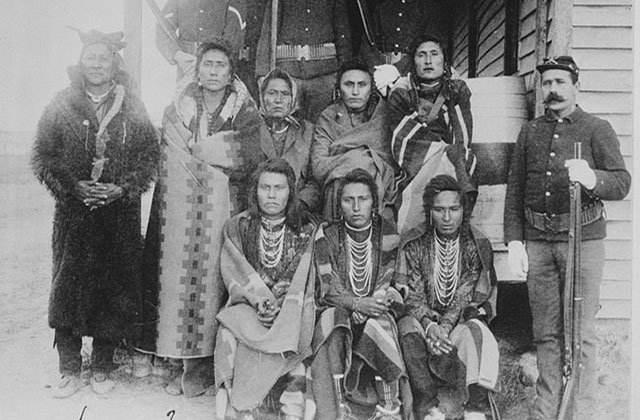Native American leaders are challenging colleges and universities across the country—whose anthropology and archeology departments use ancient objects from Native American burial sites for research—to return their ceremonial artifacts and the schools are doing so, Teen Vogue reported on March 24.
The Native American Graves Protection and Repatriation Act (NAGPRA), which went into effect in 1990, was passed as “legislation to establish a process for the repatriation of Native American human remains, funerary objects, cultural patrimony and sacred objects [which] had its origins in a hearing that was held by the Select Committee on Indian Affairs in February of 1987,” according to the bill. The report also “recommended that museums consult with Indian tribes to the fullest extent possible regarding the right of possession and treatment of remains and objects prior to acquiring sensitive materials.”
According to a 2012 report by the U.S. Department of Interior, the National Park Service and the American Indian Liaison Office, any institution that receives federal funding must adhere to NAGPRA, which also includes colleges and universities. Teen Vogue reports that over the years, the University of Massachusetts at Amherst repatriated 64 remains that were taken in 1925; the University of California, Berkeley came under fire in 2013 to return remains they’d dug up in California; that same year, Wesleyan University apologized to Native Americans and moved to repatriate; and the Peabody Museum of Archaeology and Ethnology at Harvard University still boasts that it holds “20,000 individual human remains.”
Most recently, Vassar College’s president Elizabeth H. Bradley issued a statement saying, “The remains of these Indigenous peoples have not been afforded the dignity and respect that they deserve” and that the school was working with NAGPRA to identify remains and cultural items.
For many indigenous communities, apologies only go so far when they’ve faced centuries of abuse.
“The tribes were seeing the removal of these people from their graves as part of that bigger history of things that have happened,” archaeologist Dorothy Lippert, a Choctaw Nation member who works at the Smithsonian National Museum of Natural History, told Teen Vogue. “So the smallpox blankets and the Trail of Tears, the boarding schools, the forced sterilization and all of that are things that have happened because people were controlling Native peoples’ lives.”
An archaeologist herself, Lippert continued: “People aren’t doing it to get back at the archaeologists, they’re not doing it to disrupt the museums, they’re not doing it because they’re anti-science. People are asking for repatriation as a way of caring for other people.”
